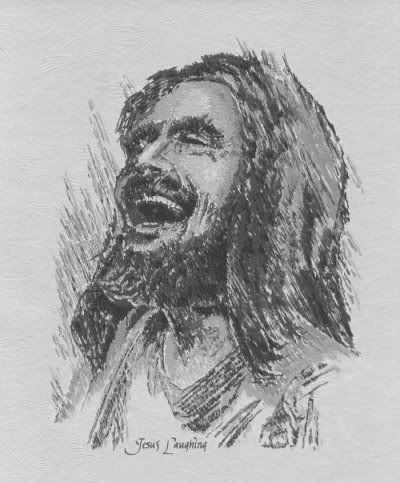from The Birth of Jesus, Matthew Weaves Together Proof Texts from Isaiah, Micah, Hosea and an Unknown Source
By John Shelby Spong
http://johnshelbyspong.com/
Christianity was born in the synagogue and the original followers of Jesus were primarily observant Jews. They gathered in the synagogue regularly on the Sabbath for worship. A major part of that worship consisted of reading, learning about and becoming conversant with the sacred scriptures as the Jews understood them. Each Sabbath there were three major scripture readings observed by the synagogue pattern of Jewish worship. The first, the longest and the most important, came from what the Jews called the Torah. This part of the Hebrew Bible was also called “The books of Moses.”
In Jesus’ day, it was generally believed that Moses was the author of the Torah books: Genesis, Exodus, Leviticus, Numbers and Deuteronomy. These writings were the Jewish “Holy of Holies” and in the stricter, more orthodox synagogues, the requirement was that the entire Torah must be read in the synagogue on the Sabbaths of a single year. To accomplish this, the Torah lesson would of necessity consist of the reading of five to six chapters of our present text as the first lesson. It would take a minimum of 10 to 15 minutes to read a passage of that length. In more moderate or “liberal” synagogues this requirement was loosened and the Torah read over a three-year cycle.
The second lesson would come from that portion of the Hebrew Bible that the Jews called “The Former Prophets.” These are the books that purport to describe Jewish history after the death of Moses, and include those works known as Joshua, Judges, I and II Samuel and I and II Kings. At an earlier point in history, the last four books were called the books of Samuel or I, II, III and IV Samuel. These books covered Jewish history from the conquest of Canaan under Joshua, around the year 1200 BCE, to the defeat of the nation of Judah at the hands of the Babylonians and the subsequent exile of the Jewish people in the land of Babylon beginning in 586 BCE. They were not as important as the Torah so there was no specific deadline by which to complete them.
The third synagogue scripture reading was from what the Jews called “The Latter Prophets.” That title referred to the books we now call Isaiah, Jeremiah, Ezekiel and the books from Hosea to Malachi, which were all on a single scroll and were referred to by the Jews as “The book of the Twelve.” Christians tend to call them “The Minor Prophets.” (Please note that Daniel did not come into the canon of Jewish Scripture until about 165 BCE and, as a late arrival, was not generally included in synagogue readings.) When one notes the length of these four books: Isaiah, Jeremiah, Ezekiel and the Book of the Twelve, we discover that they are about the same length and each tended to be read one chapter a week, one book a year, so the four books would be rotated over a four year cycle.
Following these three readings, the members of the congregation would be invited to comment on the readings. This was the context in which the followers of Jesus began to remember Jesus. In time, stories originally written about Moses or Elijah would be retrofitted and then retold about Jesus, thus linking him to the spiritual power of his Jewish ancestors. On other occasions, words from one of the prophets or from one of the psalms would illumine an experience they had once had with Jesus, and a tradition would be started in which Jesus and the Hebrew Scriptures began to meld into each other. This reality will occur over and over as we work through the gospels. For now all I want to demonstrate is that these themes are a major part of the birth narratives, and we cannot read them intelligently unless we recognize the process that created them.
We have noted already that the story of a wicked king named Pharaoh, who tried to put to death the infant Moses as God’s promised deliverer, was repackaged and told by Matthew as a Jesus story in which a wicked king named Herod tries to put to death God’s promised deliverer named Jesus. Matthew then goes on to wrap his narrative of Jesus around a series of carefully chosen texts that suggest that the history of the Jewish people is somehow being relived through Jesus and that the words of the Hebrew Scriptures find their fulfillment in him. Matthew is much like a country preacher trying to bend the biblical text to the needs of his sermon. In his birth story, Mathew utilizes texts from Isaiah, Micah, Jeremiah, Hosea and, finally, from an unknown or yet to be identified text. I will examine each in brief detail. All of them are, at the very least, enormous stretches in literal accuracy.
The first one is Isaiah 7:14. We have heard it numerous times in our Christmas pageants. Out of the darkness or even off stage, the voice of the prophet is heard saying, “Behold, a virgin shall conceive and bear a son and his name shall be called Emmanuel, which means God with us.” The first and major problem with Matthew’s use of this text is that he did not quote it accurately. Was this an honest mistake or a deliberate attempt to make the text say what he needed it to say to suit his literary purposes? No one can finally say, but I suspect the latter.
When I put these words from Isaiah into their original context, Isaiah actually writes in Hebrew: “Behold a young woman is with child!” It is rather difficult to claim one is a virgin when one is expecting a baby. Indeed, the word virgin appears nowhere in this verse from Isaiah.
The context is this. Two kings, Pekah from the Northern Kingdom called Israel and Rezin, the king of Syria, are in siege positions outside the walls of Jerusalem. They have made war on Judah and its king named Ahaz because he has refused to join their alliance against Assyria. Their goal in this war was to topple Ahaz, put a puppet king on to the throne of Judah and then to have Judah’s military strength added to their alliance designed to hold off the Assyrians. King Ahaz is atop the walls of Jerusalem inspecting its defenses when he is met by Isaiah the prophet. First, Isaiah assures the king that Jerusalem will not fall to “these smoldering stumps,” which is what he calls Pekah and Rezin. Ahaz is not convinced. Isaiah then says to him: “Ask a sign of God.” and God will convince you that you will be delivered. Ahaz refuses to ask. Irritated, Isaiah says well you will be given a sign whether you like it or not. “Behold a woman is with child.” This baby soon to be born into the royal household will be the heir to the throne, a sign that this kingdom will endure. Isaiah goes on to say that before this baby is able to eat curds and honey and before he is old enough to choose between good and evil, these kings before whom Ahaz was quaking at this moment will be long gone.
The facts of history are that the land of Judah was destined to work out a treaty with Assyria that left Judah a vassal state, but still alive, while both Syria and the Northern Kingdom of Israel were destroyed by Assyria. This text in Isaiah had nothing to do with predicting the birth of the messiah almost 800 years later!
The second text from the prophets, which Matthew weaves into his story, comes from Micah. When the wise men (I will discuss them in the next column in this series) stop to ask directions at the palace of King Herod, the king consults his chief priests and scribes to determine where it is that the messiah is to be born. One of the images so important to the Jews was that messiah must be a descendant of King David and thus heir to the Jewish throne. Part of messiah’s task was to restore the throne of King David. Micah the prophet refers to Bethlehem as the town out of which David emerged to rule the land of the Jews. The messiah must follow the same pattern. So in the opening narratives of Matthew, the birth of Jesus was shifted from Nazareth to Bethlehem, so that the messianic claim can be made and the words of the prophet Micah affirmed.
Next, when Matthew proceeds to tell the story of King Herod slaughtering the boy babies in Bethlehem in his move to destroy the promised deliverer, he relates this to another tragic moment in Jewish history when the Assyrians conquered and destroyed the Northern Kingdom, made up, according to tradition, primarily of the descendants of Joseph, the son of Rachel, who was said to have been Jacob’s favorite wife. Thus Jeremiah portrays Rachel, the tribal mother of the Northern Kingdom, as weeping for her children who are now lost forever. Matthew sees in that story a prediction of the deaths of the children at Herod’s hand.
Then Matthew says that when Joseph was forced to flee from Herod’s wrath, he took Mary and the Christ Child to Egypt. Once, God had to call the Jewish people out of Egypt. Now Matthew quotes Hosea, who was referring to Moses and the Exodus, to refer to Jesus, who is also called out of Egypt, since the messiah must relive the history of the Jews.
In Matthew’s final birth narrative, Joseph took Mary and the Christ Child to live in Nazareth. This, Matthew said, was to fulfill the words of the prophet that “he will be called a Nazarene.” Such a prophetic expectation cannot be found anywhere in scripture. The closest we can come to it is in Isaiah 11:1 where the prophet writes “There shall come forth a shoot from the stump of Jesse (David’s father) and a branch shall grow out of his roots.” It is another text used to prove that messiah must be related to David. The word “branch” in Hebrew is “nazir” or “nezer.” It sounds a bit like Nazareth, but “close” is all Matthew needed.
My point is to show how the debate waged in the synagogue as the followers of Jesus sought to understand him, his relationship to the concept of messiah and his relationship to the Jewish Scriptures. We are reading here a first century Jewish interpretation of Jesus. We are not reading history.





















